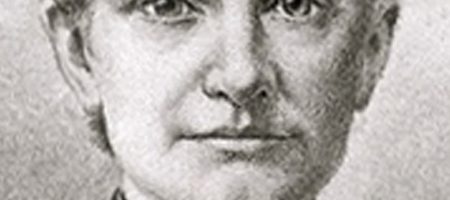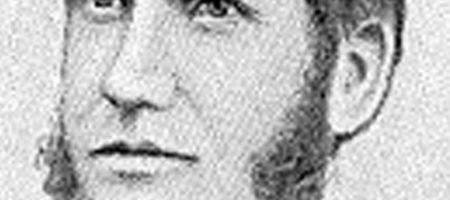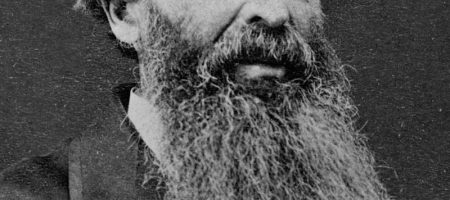Narcissa July 1836
July 16, 1836 – When I wrote this letter I expected to send it immediately, but we did not meet the party expected, and have had no opportunity since. We are now at the Rocky Mountains, at the encampment of Messrs. McLeod and McKay, expecting to leave on Monday morning for Walla Walla. It seems a special favor that that company has come to Rendezvous this season; for otherwise we would have had to have gone with the Indians a difficult route, and so slow that we should have been late at Walla Walla, and not have had the time we wanted to make preparations for winter. Husband has written the particulars of our arrival, meeting the Indians, etc., to Brother Henry.
One particular I will mention, which he did not. As soon as I alighted from my horse, I was met by a company of matrons, native women one after another shaking hands and saluting me with a most hearty kiss. This was unexpected and affected me very much. They gave Sister Spalding the same salutation. After we had been seated awhile in the midst of the gazing throng, one of the chiefs, whom we had seen before, came with his wife and very politely introduced her to us. They say they all like us very much, and thank God that they have seen us, and that we have come to live with them.
It was truly pleasing to see the meeting of Richard and John with their friends. Richard was affected to tears. His father is not here, but several of his tribe and brethren are. When they met each took off his hat and shook hands, as respectfully as in civilized life. Richard does not give up the idea of again seeing Rushville.
Your affection sister,
NARCISSA.
July 18th.
Under the protection of Mr. McLeod and his company we left the Rendezvous and came ten miles in a southwesterly direction. The Flatheads and some of the Snake Indians accompanied us a short distance. We make but one camp a day.
One the 22nd we had a tedious ride, as we traveled till half-past four P.M. I thought of mother’s bread, as a child would, but did not find it on the table, I should relish it extremely well; have been living on buffalo meat until I am cloyed with it.
Have been in a peaceful state of mind all day. Had a freedom in prayer for my beloved parents; blessed privilege that such a sinner as I may have access to a mercy seat, through such a Saviour as Jesus Christ. It is good to feel that he is all I want, and all my righteousness; and if I had ten thousand lives I would give them all for him. I long to be more like him – to possess more of his meek spirit.
25th. – Came fifteen miles to-day; encamped on Smith’s creek, a small branch of Bear creek. The ride has been very mountainous – paths winding on the sides of steep mountains. In some places the path is so narrow as scarcely to afford room for the animal to place his foot. One after another we pass along with cautious step. Passed a creek on which was a fine bunch of gooseberries, nearly ripe.
Husband has had a tedious time with the wagon to-day. It got stuck in the creek this morning when crossing, and he was obliged to wade considerably in getting it out. After that, in going between the mountains, on the side of one, so steep that it was difficult for horses pass, the wagon was upset twice; did not wonder at this at all; it was a greater wonder that it was not turning somersaults continually. It is not very grateful to my feelings to see him wearing out with such excessive fatigue, as I am obliged to. He is not as fleshy as he was last winter. All the most difficult part of the way he has walked, in laborious attempts to take the wagon. Ma knows what my feelings are.
26th. – Did not move camp today. Mr. McKay has been preparing to send out trappers from this place. Husband has been sick to-day, and so lame with the rheumatism as to be scarcely able to move. It is a great privilege that we can lie still to-day on his account, for he needs rest.
27th. – had quite a level route to-day – came down Bear river. Mr. McKay sent off about thirty of his men as trappers to-day. Several lodges of Indians also left us to go in another direction, and we expect more to leave us to-morrow. They wish to go a different route from Mr. McLeod, and desire us to go with them; but it would be more difficult and lengthy than Mr. McLeod’s. We are still in a dangerous country; but our company is large enough for safety. Our cattle endure the journey remarkably well. They supply us with sufficient milk for our tea and coffee, which is indeed a luxury. We are obliged to shoe some of them because of sore feet. Have seen no buffalo since we left Rendezvous. Have had no game of any kind except a few messes of antelope, which an Indian gave us. We have plenty of dried buffalo meat, which we have purchased from the Indians – and dry it is for me. It appears so filthy! I can scarcely eat it; but it keeps us alive, and we ought to be thankful for it. We have had a few meals of fresh fish, also, which we relished well, and have the prospect of obtaining plenty in one or two weeks more. Have found no berries; neither have I found any of Ma’s bread (Girls, do not waste the bread; if you knew how well I should relish even the dryest morsel, you would save every piece carefully.) Do not think I regret coming. No, far from it; I would not go back for a world. I am contented and happy, notwithstanding I sometimes get very hungry and weary. Have six week’s steady journey before us. Feel sometimes as if it were a long time to be traveling. Long for rest, but must not murmur.
Feel to pity the poor Indian women, who are continually traveling in this manner during their lives, and know no other comfort. They do all the work and are the complete slaves of their husbands. I am making some little progress in their language; long to be able to converse with them about the Saviour.
28th. – Very mountainous all the way to-day; came over another ridge; rode from 8 A.M. to 2 P.M. We thought yesterday the Indians were all going to leave us, except two or three; but not one has. They fear to, on account of the Blackfeet tribe, who would destroy them all, if they could. One of the axle-trees of the wagon broke to-day; was a little rejoiced, for we were in hopes they would leave it, and have no more trouble with it. Our rejoicing was in vain for they are making a cart of the back wheels, this afternoon, and lashing the fore wheels to it-intending to take it through in some shape or other. They are so resolute and untiring in their efforts they will probably succeed.
Had some fresh fish for breakfast and some antelope for supper, sent us by Mr. McLeod and other friends in camp. Thus the Lord provides, and smoothes all our ways for us, giving us strength.
July 29th. – Mr. Gray was quite sick this morning and inclined to fall behind. Husband and I rode with him about two hours and a half, soon after which he gave out entirely. I was sent on, and soon after husband left him to come and get the cart; but I overtook an Indian, who went back and soon met husband, and both returned to Mr. Gray. The Indian helped him on his horse, got on behind him, supported him in his arms and in this manner slowly came into camp. This was welcome relief, and all rejoiced to see them come in; for some of us had been riding seven hours, others eight, without any nourishment.
[The next sheet of the journal is missing, which contains the account of their arrival at Fort Hall, where, she says,] We were hospitably entertained by Captain Thing, who keeps the fort. It was built by Captain Wyeth, a gentleman from Boston, whom we saw at Rendezvous on his way east. Our dinner consisted of dry buffalo meat, turnips and fried bread, which was a luxury. Mountain bread is simply coarse flour and water mixed and roasted or fried in buffalo grease. To one who has had nothing but meat for a long time, this relishes well. For tea we had the same, with the addition of some stewed service berries.
The buildings of the fort are made of hewed logs, with roofs covered with mud brick chimneys and fireplaces also being built of the same; no windows, except a square hole in the roof, and in the bastion a few port holes large enough for guns only. The buildings were all enclosed in a strong log wall. This affords them a place of safety when attacked by hostile Indians, as they frequently are, the fort being in the Blackfeet country.
Since dinner we visited the garden and corn fields. The turnips in the garden appeared thrifty – the tops very large and tall, but the roots small. The peas looked small; but most of them had been gathered by the mice. Saw a few onions, that were going to seed, which looked quite natural. This was all the garden contained. He told us his own did extremely well until the 8th of June, when the frost of one night completely prostrated it. It has since came up again, but does not look as well as it did before. This is their first attempt at cultivation.
The buildings at Fort William, on Laramie Fork of the Platte, are made the same, but are larger and more finished than here. Here we have stools to sit on – there we had very comfortable chairs, bottomed with buffalo skin. Thus you see we have a house of entertainment almost or quite as often as Christian of the Pilgrim’s Progress did. We expect one more before we get to Walla Walla; that is Snake Fort [Boise], belonging to Mr. McKay, who is journeying with us.
From this on our company will be small. The Indians all leave us to-day except one or two who go with us to assist in driving the cattle – Kentuck, who went with Mr. Parker last year, and the chief, Rottenbelly. The whole tribe are exceedingly anxious to have us go with them. They use every argument they can invent to prevail on us to do so – and not only argument but strategy. We all think it not best; we are very much fatigued, and wish to get through as soon as possible. To go with them would take us two months or more, when now we expect to go to Walla Walla in twenty-five days. When we get there rest will be sweet to us; so will it be to the Christian when he gets to Heaven. Will father and mother get there before I do? If so, then they will be ready to greet me on the threshold. Here we have raised our Ebenezer saying, “Hitherto the Lord hath helped us.” Now we leave it and pass on. Our animals are nearly ready. It is now half-past two and we expect to go but a short distance and encamp.




